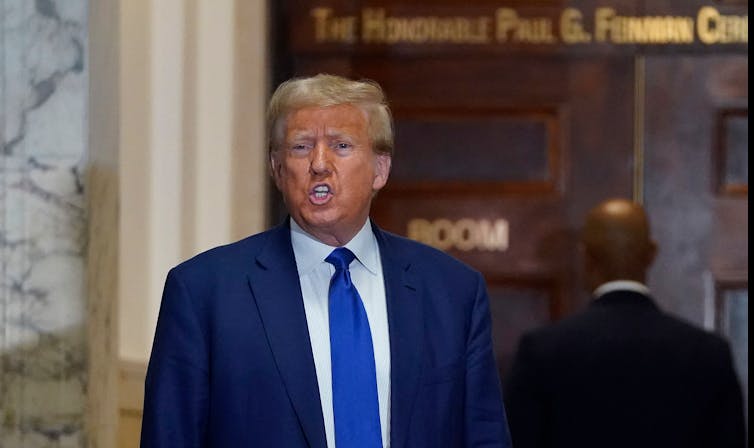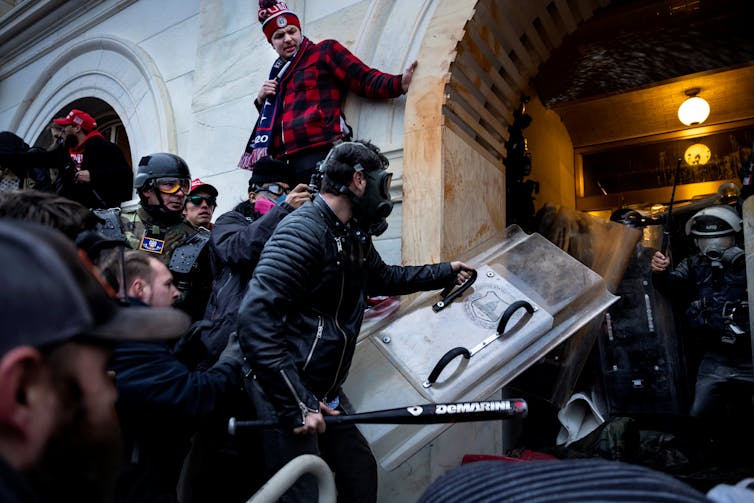Under
its new management, the agency then began dropping
lawsuits it had brought against banks, mortgage companies, car
dealers, and others it had found were defrauding or mistreating customers.
The administration is hoping to fire 1,500 of the agency’s 1,700 employees
(that move has been temporarily halted by
a judge).
Doing their part, congressional Republicans sought to
eliminate the agency entirely in their budget bill. Fortunately, that provision
was struck
down by the parliamentarian as being inconsistent with the rules of
budget reconciliation. Nevertheless, the CFPB has all but ceased to function,
which means that the kind of financial abuse it was established to prevent will
likely go unpunished.
You’re on your own
The administration is taking a similar approach in area
after area, sending a clear message to consumers that you’re on your own, and a
message to those who exploit them that they’re free to do pretty much whatever
they like.
Trump’s attempts to fire Democrat-appointed members of
independent commissions have been described mostly as an effort to consolidate
power, which is true, but those moves also mean removing restraints on scams
and abuse.
In other words, he is dismantling the government’s ability to
rectify exploitation based on power imbalances. If he succeeds, the Consumer
Product Safety Commission will do far less to protect consumers,
the National
Labor Relations Board will cease protecting workers, and the Merit
Systems Protection Board will no longer protect government employees.
If the Department
of Education is dismantled, it will no longer police the for-profit
colleges that saddled millions with crushing debt and useless degrees (or no
degrees at all). With long-awaited reforms at the Internal Revenue Service
being quickly reversed — the administration is planning to
cut its workforce in half — tax cheats know that they stand a good chance of
getting away with their crimes.
At times it almost seems as though
administration officials are searching frantically for anything the federal
government does that might be useful or helpful to regular people, and quashing
it. They’re even eliminating the
Energy Star program, which does nothing but inform consumers about which
appliances are energy efficient, saving them tens of billions of dollars in
utility costs every year.
There may be no area with more reckless dismantling going on
than finance, where the system of regulation and law enforcement now reflects
Trump’s personal views. He himself was repeatedly investigated
by the federal government for various financial misdeeds, and he obviously
believes that finance is and ought to be an arena where rules
are for suckers and succeeding at the con game just means you’re smart.
To understand how and why, Trump’s reversal on the crypto
industry is the key piece of context. In years past he had described crypto
as “a scam,” but at some point he had a realization: If crypto is a scam, the
scammer-in-chief surely ought to be in on it.
The then-unprecedented corruption
of Trump’s first term pales in comparison to what his family is now doing,
building a crypto empire —
stablecoins, meme coins, bitcoin mining — with ample opportunities for
criminals, foreign governments, or anyone else who might want something from
the president to put money right in his pocket.
And since crypto is becoming so central to his own wealth,
Trump very much wants to ensure that the industry is regulated as little as
possible, if at all. To that end, his Justice Department disbanded its National
Cryptocurrency Enforcement Team and told
prosecutors to stop investigating certain kinds of crypto crimes.
Under the leadership of Paul Atkins, the crypto advocate Trump made
chair of the Securities and Exchange Commission, the agency has dropped a
dozen pending enforcement actions against crypto firms for various kinds of
alleged violations, including some involving major donors to
Trump.
Few were happier about the policy about-face than Justin Sun, the
Chinese-born crypto billionaire who was charged by
the SEC in 2023 with various forms of fraud. After Sun bought $75 million in
crypto tokens from World Liberty Financial, a firm controlled by the Trump
family, the SEC halted the
investigation and asked a judge to set the case aside.
As the Wall Street Journal recently
reported, enforcement of laws against all kinds of white-collar crime is
atrophying and “in some cases, the administration is effectively redefining
what business conduct constitutes a crime.”
It’s only getting started
It can be a shock to remind oneself that we’re still less
than six months into Trump’s term, so when it comes to changing the
government’s position on scams and cons, he may just be getting started. Though
most people probably weren’t aware of it, the Biden administration amassed an
impressive record of
regulation aimed at preventing consumers from being misled and manipulated —
all of which could be vulnerable to the current administration’s regulatory
rollback.
For example, the FTC under Biden created a “click-to-cancel”
rule, which requires companies to make it no more difficult to cancel a
subscription or a service than it is to sign up in the first place; if you’ve
ever tried to cancel a gym membership, you know why this was necessary.
But the
Trump administration has delayed implementation
of the rule, and it’s unclear as of yet whether they’ll try to kill it
entirely. Will they reverse the
regulation cracking down on junk fees in hotels and concert tickets,
or the
one banning fake online reviews? They certainly might.
Why, one might ask, would Donald Trump want Americans to
live in Scamville? The answer is that it’s the place that made him, where he
thrived by preying on those with less money and power than he had.
When he sees
that America has a law that bans our companies from paying bribes overseas, he
recoils in disgust and tells the Justice Department to stop
enforcing it; after all, that’s just how things work. It’s a dog-eat-dog
world out there.
Corruption and scams are not the same thing, but they are
close cousins. They add a note of tension and uncertainty to life — the
knowledge that rules are not necessarily followed, fair treatment is not the
default, and we’re more vulnerable than we ought to be. All of which is fine
with Trump and the administration he leads.
America ought to be a place where
everyone is expected to act with integrity and the government protects people
from abuse and exploitation. But in the phrase the Trump administration uses so
often, that would be “not consistent with the president’s priorities.”
🫵
Subscribe to Public Notice 🫵






.webp)















